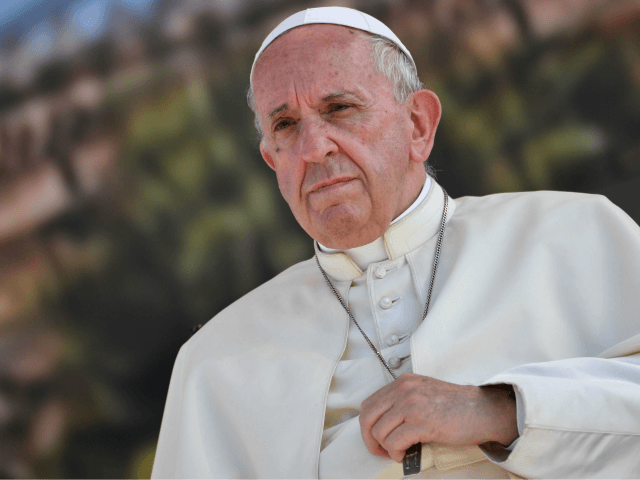ROME — Pope Francis has urged members of the World Economic Forum (WEF) meeting at Davos this week to promote “far-sighted and ethically sound” models of globalization.
The World Economic Forum “aims to guide and strengthen political will and mutual cooperation,” the pontiff told them, and “provides an important opportunity for multi-stakeholder engagement to explore innovative and effective ways to build a better world.”
The process of globalization has by now “clearly demonstrated the interdependence of the world’s nations and peoples,” the pope said, and thus has “a fundamentally moral dimension.”
It is essential to promote “far-sighted and ethically sound models of globalization, which by their very nature must entail subordinating the pursuit of power and individual gain, be it political or economic, to the common good of our human family,” he said.
Authentic development “must be global, shared by all nations and in every part of the world, or it will regress even in areas marked hitherto by constant progress,” he stated.
It is therefore vital that “intergovernmental structures be able effectively to exercise their functions of control and guidance in the economic sector, since the achievement of the common good is an objective beyond the reach of individual states,” he declared.
With his constant calls for multilateralism and globalist solutions to political and economic problems, the pope has been a natural ally of the WEF, whose goals overlap substantially with his own.
Davos is freaking out about Trump. You love to see it.https://t.co/PUMFG6jyCV
— Breitbart News (@BreitbartNews) January 17, 2024
In a 2020 op-ed for the New York Times, Francis wrote this “is a moment to dream big, to rethink our priorities — what we value, what we want, what we seek — and to commit to act in our daily life on what we have dreamed of.”
“God asks us to dare to create something new,” he wrote. “We cannot return to the false securities of the political and economic systems we had before the crisis. We need economies that give to all access to the fruits of creation, to the basic needs of life: to land, lodging and labor.”
“We need to slow down, take stock, and design better ways of living together on this earth,” he proposed.
The WEF interpreted the pope’s words as an endorsement of its “Great Reset” program and highlighted the similarities between their visions.
In an article titled “Here’s the pope’s prescription for resetting the global economy in response to COVID-19,” the WEF said that Francis had “put his stamp on efforts to shape what’s been termed a Great Reset of the global economy in response to the devastation of COVID-19.”
“Pope Francis has issued a scathing indictment of neoliberalism,” the WEF declared, “a philosophy espousing austerity, privatization, deregulation, unbridled markets, and relatively weak labor laws.”
Furthermore, the pope “blames the ‘dogma’ of neoliberal economics for making us more vulnerable to COVID-19,” it said, while calling for “greater multilateral cooperation and a focus on human dignity.”
“Neoliberalism’s free-market orthodoxy has been blamed for making health care systems and livelihoods especially vulnerable to the pandemic, and has drawn a clearer line under the need for active government intervention,” the article stated.

COMMENTS
Please let us know if you're having issues with commenting.